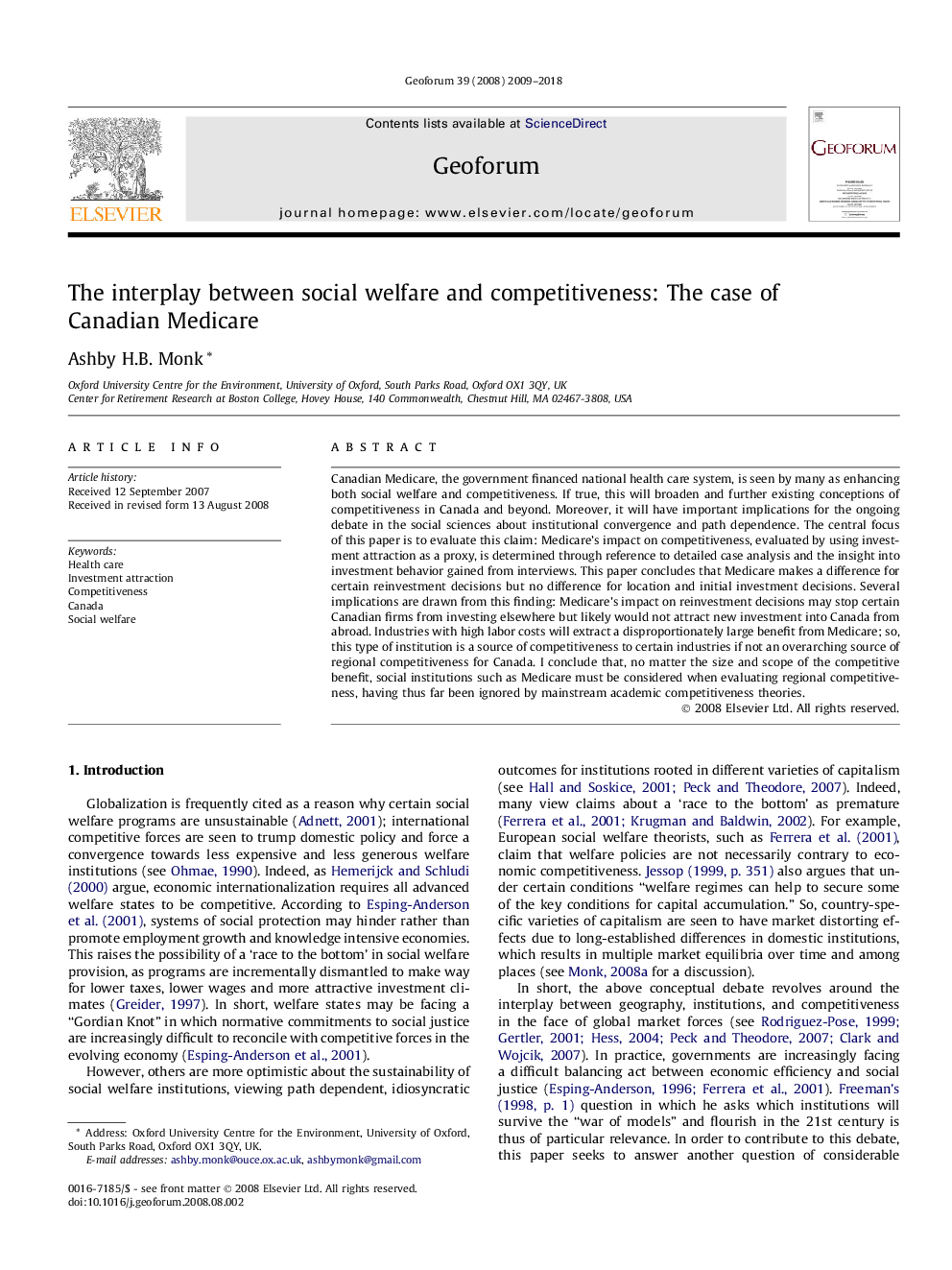| Article ID | Journal | Published Year | Pages | File Type |
|---|---|---|---|---|
| 5074851 | Geoforum | 2018 | 10 Pages |
Abstract
Canadian Medicare, the government financed national health care system, is seen by many as enhancing both social welfare and competitiveness. If true, this will broaden and further existing conceptions of competitiveness in Canada and beyond. Moreover, it will have important implications for the ongoing debate in the social sciences about institutional convergence and path dependence. The central focus of this paper is to evaluate this claim: Medicare's impact on competitiveness, evaluated by using investment attraction as a proxy, is determined through reference to detailed case analysis and the insight into investment behavior gained from interviews. This paper concludes that Medicare makes a difference for certain reinvestment decisions but no difference for location and initial investment decisions. Several implications are drawn from this finding: Medicare's impact on reinvestment decisions may stop certain Canadian firms from investing elsewhere but likely would not attract new investment into Canada from abroad. Industries with high labor costs will extract a disproportionately large benefit from Medicare; so, this type of institution is a source of competitiveness to certain industries if not an overarching source of regional competitiveness for Canada. I conclude that, no matter the size and scope of the competitive benefit, social institutions such as Medicare must be considered when evaluating regional competitiveness, having thus far been ignored by mainstream academic competitiveness theories.
Related Topics
Social Sciences and Humanities
Economics, Econometrics and Finance
Economics and Econometrics
Authors
Ashby H.B. Monk,
